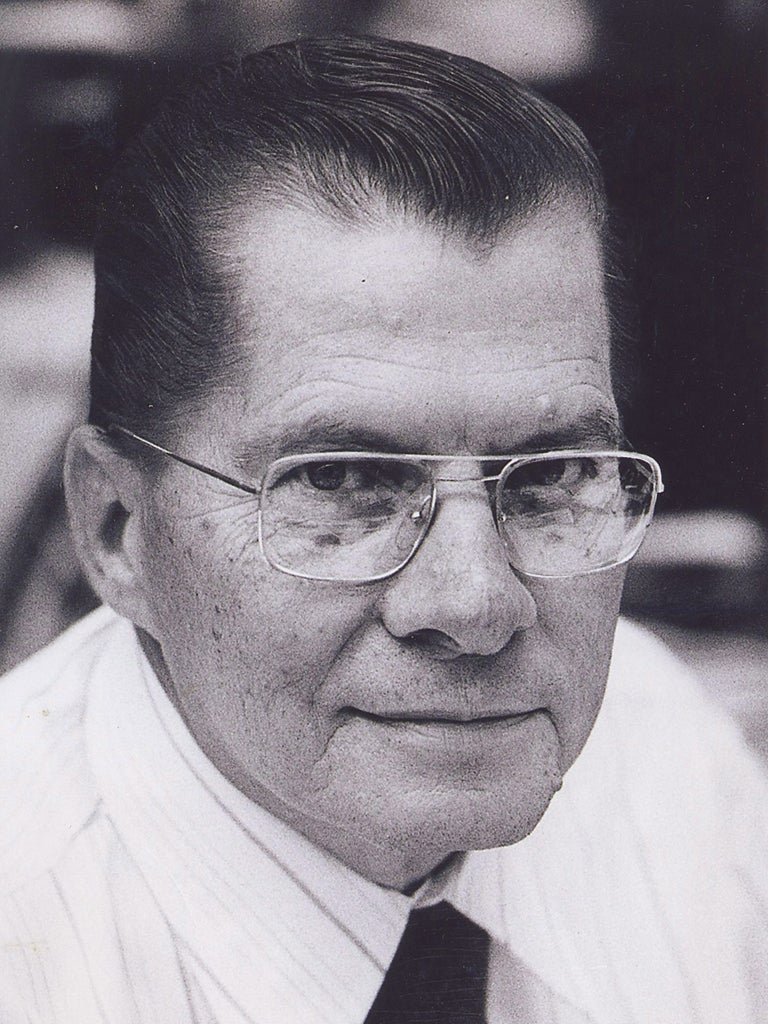
Your support helps us to tell the story
From reproductive rights to climate change to Big Tech, The Independent is on the ground when the story is developing. Whether it's investigating the financials of Elon Musk's pro-Trump PAC or producing our latest documentary, 'The A Word', which shines a light on the American women fighting for reproductive rights, we know how important it is to parse out the facts from the messaging.
At such a critical moment in US history, we need reporters on the ground. Your donation allows us to keep sending journalists to speak to both sides of the story.
The Independent is trusted by Americans across the entire political spectrum. And unlike many other quality news outlets, we choose not to lock Americans out of our reporting and analysis with paywalls. We believe quality journalism should be available to everyone, paid for by those who can afford it.
Your support makes all the difference.He may not be quite up there with Isaac Newton and Thomas Edison in the pantheon of modern science. But couch potatoes everywhere should give thanks to Eugene Polley. By inventing the first wireless television remote control he changed America's leisure habits and thereby left his mark on modern global civilisation.
"Just think," proclaimed an advertisement as Polley's gadget was launched in 1955, "Without budging from your easy chair you can turn your New Zenith Flash-Matic set on, off, or change channels. Absolutely harmless to humans. You can even shut off annoying commercials while the picture remains on the screen." The world hasn't been the same since.
In fact the Flash-Matic was not the first TV remote. That distinction belonged to a device called Lazy Bones, introduced five years before by Zenith, a pioneer of the television industry, whose president Eugene McDonald feared that unless something was done, commercials would be the death of the lucrative new medium. Lazy Bones, however, had the disadvantage of being attached to the set by a long cord, making it both unsightly and apt to trip people up. McDonald demanded something better, and Polley, a rising star in Zenith's engineering department who had worked on bomb fuses and radar for the US military during the Second World War, duly obliged.
The Flash-Matic instead worked by using light. It resembled a pistol-shaped torch that sent a beam of light to receptors on the four front corners of the set. The top ones controlled the channels (barely a dozen in those days) while the bottom two turned the television on and off and muted the sound.
But the Flash-Matic, too, had drawbacks. It was expensive, a $100 extra on a set that already cost $500, and because it was light-controlled, channels could suddenly change, or the set abruptly switch on or off, if sunlight fell upon the screen. The Flash-Matic was well received, but only 30,000 were sold before Zenith introduced a new remote 12 months later called Space Command. Invented by Robert Adler, a colleague of Polley, this one used high frequency sound waves, inaudible to humans. It too had inconveniences – Space Command could be triggered by jangling coins or keys and sometimes upset the family dog. But it was better lasting and more reliable, and remained the standard until today's infrared remotes were introduced in the early 1980s.
Polley's career as an inventor continued, earning him 18 patents for his work on devices such as push-button radios for cars, and an early version of themodern DVD. In 1997 he and Adler,who died in 2007, were awarded an honorary Emmy for their work on developing the TV remote.
But to the end of his days he felt that Adler received too much of the praise. Zenith did give Polley a $1,000 bonus for the Flash-Matic – but basically, as he grumbled to The Chicago Tribune in 2006, "Not only did I not get credit for doing anything. I got a kick in the rear end." He also seemed to have growing doubts about the supposed boon he had conferred on his fellow humans. "Everything now has to be done remotely or forget it," Polley said in his later years. "Nobody wants to get off their fat and flabby to control these electronic devices."
Rupert Cornwell
Eugene Theodore (Joseph) Polley, inventor: born Chicago 29 November 1915; married 1942 Blanche Wiley (one son, one daughter); died Downers Grove, Illinois 20 May 2012.
Join our commenting forum
Join thought-provoking conversations, follow other Independent readers and see their replies
Comments